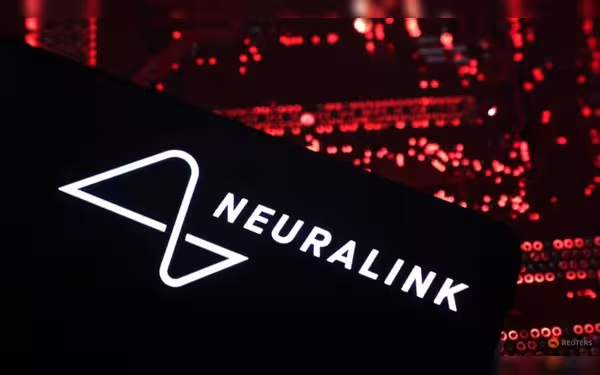Saturday, November 16, 2024 07:26 PM
Neuralink's Blindsight Implant Receives FDA Breakthrough Designation
- Neuralink's Blindsight aims to restore vision for the blind.
- FDA grants breakthrough device status to Neuralink's implant.
- Innovative technology could transform lives of disabled individuals.
 Image Credits: channelnewsasia
Image Credits: channelnewsasiaNeuralink's Blindsight implant receives FDA breakthrough designation, aiming to restore vision for the blind and transform lives.
Elon Musk's company, Neuralink, has made a significant leap in the field of medical technology. On Tuesday, the U.S. Food and Drug Administration (FDA) granted Neuralink's experimental device, known as "Blindsight," a special designation called "breakthrough device." This designation is awarded to medical devices that show promise in treating or diagnosing serious health conditions, allowing them to move through the approval process more quickly.
The Blindsight implant aims to restore vision for individuals who have lost their eyesight, even those who have lost both eyes and their optic nerve. Musk expressed his excitement about this development, stating that the device "will enable even those who have lost both eyes and their optic nerve to see." This could be a game-changer for many people who have been living without sight.
Neuralink, founded in 2016, is working on creating a brain chip interface that can be implanted in the skull. This technology is designed to help disabled patients regain their ability to move and communicate. The chip processes and sends signals from the brain to devices like computers and smartphones, potentially transforming the lives of those with disabilities.
In addition to the Blindsight device, Neuralink is also testing another implant that allows paralyzed patients to control digital devices using only their thoughts. This innovative approach could provide a new level of independence for individuals with spinal cord injuries. Currently, a trial is set to enroll three patients to evaluate this device, with the study expected to take several years.
Earlier this year, Neuralink successfully implanted its device in a second patient, who has been using it to play video games and learn how to design 3D objects. This progress highlights the potential of Neuralink's technology to not only restore basic functions but also enhance the quality of life for users.
As we look to the future, the advancements made by Neuralink could pave the way for revolutionary changes in medical technology. The ability to restore vision and improve communication for those with disabilities is not just a scientific achievement; it is a beacon of hope for many. With continued research and development, we may soon witness a world where technology and human capability merge in ways we have only dreamed of.













